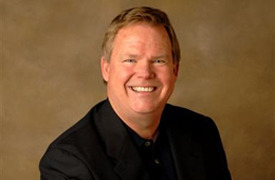How to Stop Self-Doubt

Sam has a reputation of being smart, capable, and dependable. He knows that, but can’t seem to help but question and doubt himself more than he would like. One month ago, Sam was made a team leader and that bolstered his confidence some, but he still finds himself stuck in his insecurities at times.
If you’ve struggled with self-doubt and second-guessing yourself, here’s what you need to do.
Master your self-talk
Despite the fact that we “talk” to ourselves every minute of the day, most of us don’t pay attention to our self-talk. It’s like a subliminal program running underneath our conscious awareness. The thing is, your confidence depends upon the content and quality of your inner dialogue. If you want more confidence and peace of mind, you have to start with your self-talk.
Start asking yourself questions that promote self-confidence. Instead of asking yourself, “Did I make the wrong decision?” ask yourself, “What evidence do I have to support the decision I made?” In all probability, you have reason to believe you made a reasonable decision—but you have to look for that evidence and use it as you communicate with yourself.
Ask for feedback
Ask a trusted colleague for her take on your situation. You need better information to assess how you’re doing. If you always think, “Am I missing something here?” you’ll always find something. No one can make perfect decisions.
Ask for input from someone who can view your situation from a “clean filter.” Then tell yourself, “It’s far more probable he sees my situation more accurately than I do.” Remind yourself of this several times through the day until you have more confidence in your new perspective.
Embrace “Good enough”
Perfectionism is a habit that fuels self-doubt and second-guessing yourself. The solution is to understand that successful people act fast and then adjust as they go along. There is no such thing as a perfect decision and we never handle any situation perfectly—we don’t even know what that would look like. It might be helpful to remind yourself of this throughout the day.
Get help from others to develop a sense of what “good enough” is. You can always improve anything you do, but the question is, “Is it worth it the time and energy it would require?” Usually the answer is “No.” Practice asking yourself, “Is this good enough for me to reach my current objectives?” Then remind yourself that by going with what’s “good enough” you can now move on to the next thing that requires your focus.
Use the “WYSTTYBF” Test
In my book Seven Secrets to Enlightened Happiness, I share an effective technique that can grow your confidence. The acronym above stands for “Would You Say That To Your Best Friend?” This exercise is powerful because you’re likely to have a more accurate assessment of your situation if you put someone else in your shoes and reevaluate.
Imagine your best friend is in your situation. After they explained their decisions, how would you assess their handling of it? In all fairness, you then have to apply your assessment of them to yourself.
- Alan Allard, Executive Coach
Helene Lerner's Blog
- Helene Lerner's profile
- 9 followers



